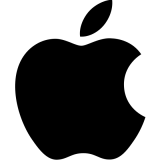Apple is not big on subtlety. Its announcement party unveiling the new iPhone 6 and Apple Watch included a mini-concert by none other than U2, whose new album was also given away for free on iTunes, as part of the big rollout. The company’s introduction of Apple Pay, the new digital wallet that will be available to millions of iPhone users, while not quite as flashy, was also significant.
Apple Pay, which will use near field communication (NFC) to allow shoppers to utilize tap and pay technology to purchase items with their phones, was introduced with the news that American Express, Visa and MasterCard had all signed on in support, along with retailers representing 220,000 American stores. “Working with Apple, we’re excited to bring Apple Pay to tens of millions of Capital One customers,” said Frank LaPrade, the Capital One Chief Enterprise Services Officer, in the sort of enthusiastic vote of support that accompanied Apple Pay’s debut. “We are laser focused on the evolution of digital products and services.”
Even though Apple Pay received a big embrace from banks, credit card companies and many retailers, it faces plenty of hurdles before it becomes a mainstream payment option. For one thing, consumers who have been barraged with news about data breaches and thefts could very well be leery of a new payment choice – even if, as Apple points out, it is more secure than debit or credit cards. Retail consultant, Cathy Hotka, was quoted in a recent Forbes story asserting that adoption of Apple Pay would be slow, largely due to uncertainty around security. “A lot of consumers will have to be convinced that their data will remain protected,” she said. “With the choice between shaving off a few seconds and having a safer transaction, consumers will choose safety.”
Another issue is how quickly consumers will upgrade to Apple devices that are equipped with the NFC technology that allows Apple Pay to function. Larry Negrich, a vice president of marketing at nGage Labs was quoted in the Forbes article saying that he expects it to take four years for all iPhone users to have the technology required to utilize Apple Pay. Even when that happens, Negrich notes that will still only account for 50 percent of all consumers. “I think Apple has created a better total solution to the security issue. However what about the other 50 percent of consumer mobile transactions?” he said. “Retailers will surely be faced with supporting Apple Pay and multiple other mobile payment solutions all seamlessly-integrated into their years-old POS (Point of sale) software.”
Ultimately, though, even many of the skeptics about Apple Pay’s immediate adoption think it has great long-term potential. Tom Redd of SAP Global told Forbes that it’s easy to see why Apple will succeed. “Hey, the Millennials live by Apple, and if Apple says, ‘Do it,’ consider it done.”
